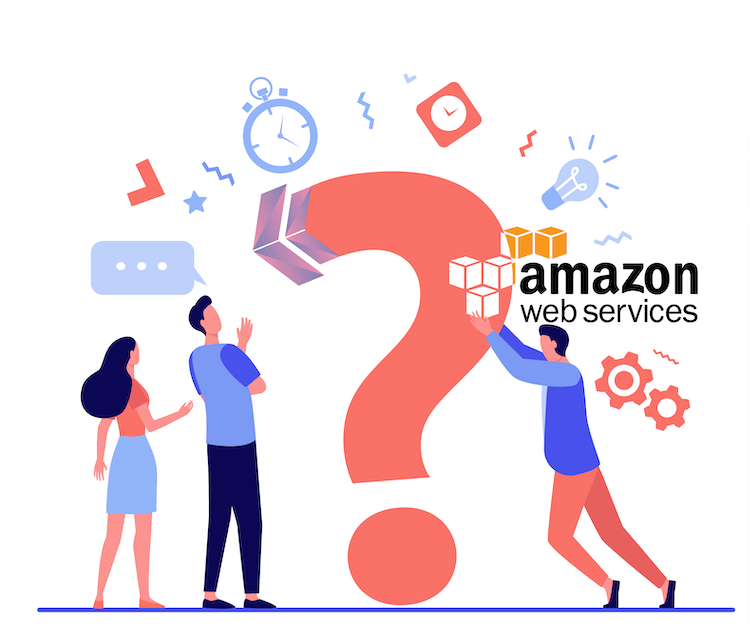AWS DevOps brings together Amazon Web Services (AWS) and DevOps practices to simplify software development and operations. This integration enables businesses to automate processes, manage infrastructure effectively, and deliver software quickly. Whether you’re new to IT or an experienced professional, understanding AWS DevOps opens up exciting career opportunities.

What is AWS?
Amazon Web Services (AWS) is a leading cloud computing platform. Instead of managing physical servers and hardware, AWS provides on-demand resources like storage, databases, and virtual machines. The key benefit? You pay only for what you use, making it cost-effective and scalable.
Amazon defines itself:
“Amazon Web Services (AWS) is the world’s most comprehensive and broadly adopted cloud platform, offering over 200 fully-featured services from data centers globally.”

What are the Popular AWS Services:
Here are the popular AWS services;
- Amazon EC2: Virtual servers for hosting applications.
- Amazon S3: Reliable storage for files and data.
- Amazon RDS: Fully managed databases.
What is DevOps?
DevOps is a culture and methodology that combines development (Dev) and operations (Ops) to improve collaboration and efficiency. In the past, developers created software while separate operations teams handled deployment and maintenance. This split often caused delays.
DevOps eliminates these silos, enabling faster updates and better collaboration.

What are the Core DevOps Practices:
- Continuous Integration (CI): Automatically testing and integrating code changes.
- Continuous Delivery (CD): Automating software deployment to production.
- Monitoring: Ensuring systems run smoothly and fixing issues quickly.
DevOps creates a seamless workflow where developers and operations teams work together, improving both speed and quality.
What is AWS DevOps?
AWS DevOps combines AWS services with DevOps practices to enhance software delivery. AWS provides tools to automate infrastructure provisioning, code deployment, and monitoring, making the DevOps process more efficient.
What are the Key AWS DevOps Features?
Here are the key AWS DevOps features:
- Provision resources quickly with Infrastructure as Code tools like AWS CloudFormation.
- Deploy applications smoothly with AWS CodeDeploy.
- Monitor performance with Amazon CloudWatch.
By using AWS DevOps, teams can build, deploy, and manage applications more effectively.
What are the AWS DevOps Tools?
AWS offers a variety of tools that simplify DevOps workflows:
| Category | Tools |
| CI/CD | AWS CodePipeline, AWS CodeBuild, AWS CodeDeploy, AWS CodeStar |
| Microservices | Amazon Elastic Container Service (ECS), AWS Lambda |
| Infrastructure as Code | AWS CloudFormation, AWS OpsWorks |
| Monitoring and Logging | Amazon CloudWatch, AWS X-Ray, AWS CloudTrail |
| Platform as a Service | AWS Elastic Beanstalk |
| Version Control | AWS CodeCommit |
These tools allow you to automate processes, reduce errors, and improve efficiency in managing applications.
What are the Benefits of AWS DevOps?
AWS DevOps offers numerous advantages for both businesses and professionals. It streamlines software development, automates processes, and improves collaboration between teams. Key benefits include:
- Efficiency: Automate infrastructure provisioning and application deployment.
- Scalability: Leverage cloud-based solutions to scale resources up or down as needed.
- Career Growth: AWS DevOps is in high demand, offering competitive salaries and advancement opportunities.
This video helping you understand why AWS DevOps is a valuable skill set.
What Does a DevOps Engineer Do?
A DevOps engineer bridges the gap between development and operations. They ensure that applications move smoothly from coding to deployment while monitoring performance post-launch.
What are the DevOps Engineer Responsibilities:
Here are the DevOps Engineer responsibilities;
- Version Control: Using tools like Git to manage code changes.
- Infrastructure Management: Setting up infrastructure with tools like Terraform or Ansible.
- Cloud Deployment: Running applications on cloud platforms like AWS.
- CI/CD Pipelines: Automating testing and deployment with Jenkins.
- Containerization: Packaging applications with Docker and managing them with Kubernetes.
- Monitoring: Using tools like Amazon CloudWatch to keep systems running optimally.
Let’s break this down with an example. Imagine a team building a mobile app. A DevOps engineer ensures:
- Code changes are tracked using Git.
- Development and testing environments are created using AWS.
- The app is deployed automatically through a CI/CD pipeline.
- The app performs well in production with real-time monitoring.
For more information you can check our article titled “AWS DevOps Engineer: Roles, Skills, and Responsibilities”
How to Become an AWS Certified DevOps Engineer?
To become an AWS Certified DevOps Engineer, focus on building expertise in three key areas:
- IT Fundamentals: Learn the basics of networking, operating systems, and version control.
- Cloud Computing: Understand AWS core services like Amazon EC2, S3, and RDS.
- DevOps Tools: Get hands-on experience with tools like Terraform, Docker, and Jenkins.
For a deeper dive into the essential skills needed for a successful career in AWS Cloud and DevOps, check out our article on “10 Skills you Need to Know for IT Careers in AWS Cloud & DevOps“.
What are the Steps to Certification?
Here are the four steps to earning your AWS DevOps certification:
- Start with the Basics: Begin with foundational IT courses to understand networking, operating systems, and version control systems if you’re new to the field.
- Learn AWS Services: Explore AWS tools and services through practical projects.
- Master DevOps: Focus on DevOps tools, CI/CD pipelines, and containerization.
- Take the Certification Exam: Prepare for the AWS Certified DevOps Engineer exam to validate your skills.
For a comprehensive guide to preparing for the AWS Certified DevOps Engineer exam, check out our article on “The AWS Certified DevOps Engineer Exam: A Complete Guide“.
Why Learn AWS DevOps?
AWS DevOps is in high demand. Businesses rely on professionals who can manage applications efficiently in cloud environments. Learning AWS DevOps not only boosts your skills but also enhances your career prospects.
Whether you’re starting fresh or advancing your career, mastering AWS DevOps equips you with the tools to succeed in the fast-paced IT industry.
Conclusion
AWS DevOps integrates AWS services with DevOps principles, making software development and operations seamless. By mastering AWS DevOps tools and practices, you can build a rewarding career in IT. Enrolling in an AWS DevOps course is a great way to start your journey and gain the skills needed to excel in cloud computing and automation.




